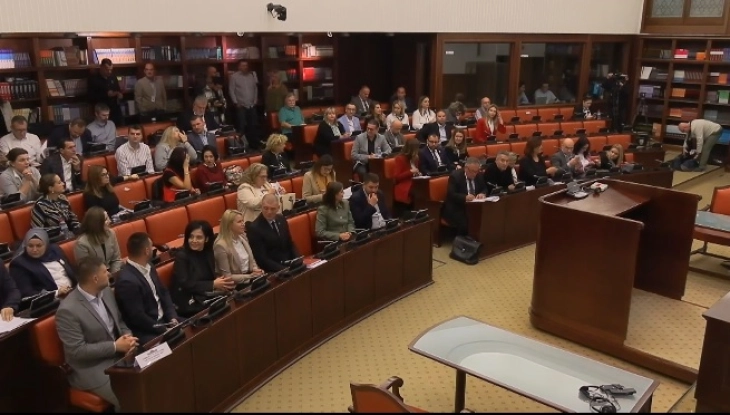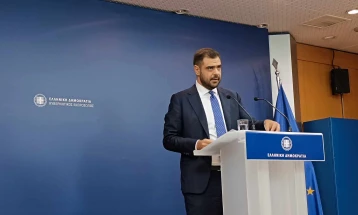Fourth public debate on administration reform bills: Consider professional skills, adjust salaries, eliminate clientelism
- When hiring governmental workers, in addition to candidates' formal education, their professional skills and competencies as well as informal education should also be taken into consideration, according to recommendations given at the fourth and final public debate on a set of public administration reform bills held on Monday. Other recommendations included adjusting public sector paychecks based on the average monthly salary and eliminating partisanship and clientelism from the public administration.

Skopje, 28 October 2024 (MIA) -- When hiring governmental workers, in addition to candidates' formal education, their professional skills and competencies as well as informal education should also be taken into consideration, according to recommendations given at the fourth and final public debate on a set of public administration reform bills held on Monday.
Other recommendations included adjusting public sector paychecks based on the average monthly salary and eliminating partisanship and clientelism from the public administration.
The public debate focused on the draft Law on Civil Servants, the draft Law on Public Sector Employees, and the draft Law on Professional Development and Training of Public Sector Employees.
The debate was organized by the Ministry of Public Administration and the Parliamentary Inter-Community Relations Committee as part of a National Democratic Institute-supported campaign to promote greater professionalism in the public administration.

Minister of Public Administration Goran Minchev said the government's key priority was to reform the public administration and promote greater transparency in its work.
"Our goal is to create applicable laws. The recommendations given at these public debates have been and will be crucial for adopting the new public administration laws," Minchev said.
The public administration reform bills should be submitted to a vote by the end of the year, he said.
"We will implement all proposals within our competences. We cannot make everyone's wishes come true, but we want to reach solutions that are more acceptable," Minchev said.

According to administrative law expert Borche Davitkovski, the final draft versions should take into account the Constitutional Court decision on the status of higher education employees as well as the Constitutional Court decision on the scrapped 'Balancer' ethnic diversity program.
He said attention should also be paid to the separation of powers.
"We should finally adopt these laws so we don't get negative repercussions from the EU," Davitkovski said.

Federation of Trade Unions of Macedonia president Slobodan Trendafilov voiced concerns about public sector salaries, collective agreements, and the right to strike.
"The law should be in the interest of the public administration employees," he said, pointing out that the proposed new legislation was in fact reducing employees' salaries and not taking into consideration the minimal wage.
According to Trendafilov, public administration staff salaries should be adjusted by a factor that is proportional to the increase in the average monthly salary, like government officials' paychecks are.
"We also demand that salaries foresee transportation costs, too," he said.
The union leader also said wages needed to be calculated according to collective agreements and all public administration workers, except the police and military, should be freely allowed to strike.

Trade Union of Administration, Judiciary and Citizens' Associations leader Trpe Deanoski said the bills should include provisions on promoting employees in public institutions. "Order should be introduced also in the part of reassigning employees," Deanoski said.
Salaries should be paid according to collective agreements, he said, adding that the bill should be amended regarding the factors proportional to the increase in the average monthly salary.

Confederation of Free Trade Unions head Blagoja Ralpovski said salary calculations should also factor in employees' education and job difficulty levels. mr/







